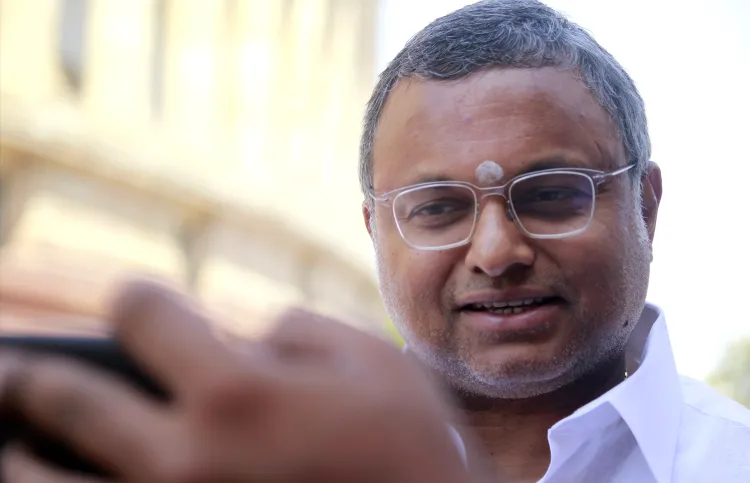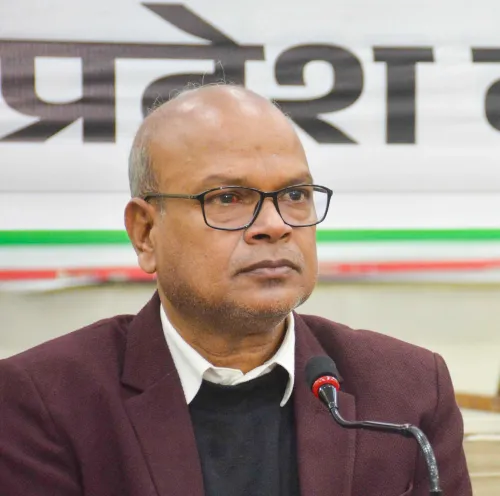Could Junior Chidambaram's Urban-Centric Political Party Transform Politics?

Synopsis
Key Takeaways
- Need for an Urban-Focused Party: Chidambaram advocates for a political entity dedicated to urban issues.
- Frustration with Mainstream Politics: Urban voters feel neglected by identity-driven agendas.
- Challenges Faced: Urban areas struggle with infrastructure, waste management, and public services.
- Potential for Change: A focused political movement could reshape urban political discourse.
- Call for Pragmatic Governance: The emphasis is on service-oriented approaches rather than divisive rhetoric.
New Delhi, June 28 (NationPress) Congress MP Karti P Chidambaram has ignited a significant political discussion through a compelling social media message advocating for the establishment of a distinct political party dedicated solely to urban concerns.
In a forthright post shared on X, Chidambaram—who is the son of former Union Finance Minister P. Chidambaram—asserted that conventional political parties have persistently neglected the needs of India’s swiftly expanding urban demographic.
“I believe a new political entity (in India) concentrating exclusively on urban matters—such as ease of living, quality of infrastructure, and public services—free from emotional topics (like religion, caste, and language) would likely find substantial acceptance,” he expressed.
“As none of the current political establishments genuinely tackle these concerns or elevate them on their agendas.”
Chidambaram’s statements arrive during a period when urban India is facing escalating issues, including deteriorating infrastructure, poor waste management, traffic congestion, and irregular public services.
This sentiment mirrors the growing frustrations of urban voters who feel neglected by political dialogues largely centered on identity issues and rural-focused policies.
This is not the first occasion the MP from Sivaganga (Tamil Nadu) has expressed worries regarding governance deficiencies in cities.
Earlier this year, he criticized the Chennai Corporation for ineffective waste management and declining civic conditions, urging officials to take lessons from more efficiently managed cities like Indore.
His recent appeal for a new political movement—prioritizing practical governance over divisive rhetoric—has struck a chord with portions of the urban middle class and professionals who frequently feel politically marginalized.
While Chidambaram has not formally outlined any plans to launch such a party himself, his remarks on the micro-blogging platform X have fueled speculation about the potential for a new urban-focused political force to gain traction in India’s changing electoral landscape.
Political commentators note that although urban voters are often perceived as indifferent or fragmented, a targeted platform that addresses their everyday challenges—without referencing religion, caste, or language—could significantly influence discussions in metropolitan districts.
Whether this concept will gain traction or remain a solitary voice in the digital realm is yet to be determined. Nonetheless, Chidambaram’s post has certainly opened a new dialogue regarding India’s political future.










